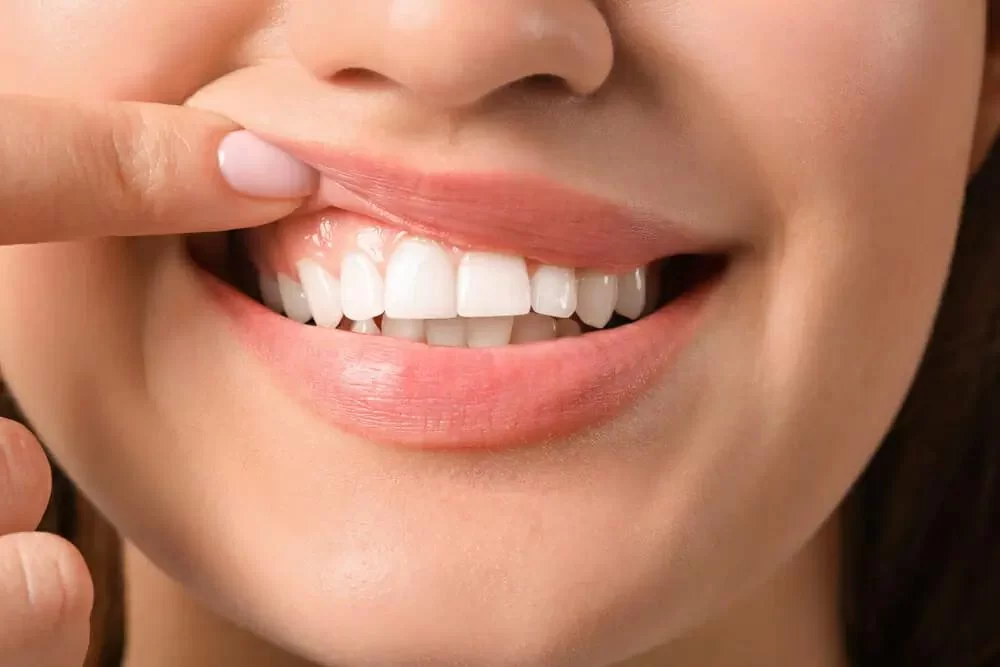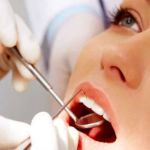
- 1-Understanding Gingivitis
- 2-Best Oral Habits to Prevent Gingivitis
- 3-Diet and Lifestyle Tips for Healthy Gums
- 4-Dental Products to Support Oral Health
- 5-Common Mistakes to Avoid for Healthy Gums
- 6-Real-Life Stories of Gingivitis Prevention
1. Understanding Gingivitis
Gingivitis is an early stage of gum disease, often characterized by red, swollen, and bleeding gums. This condition is typically caused by a buildup of plaque on the teeth, which leads to irritation of the gums. If left untreated, gingivitis can progress to more severe gum disease, such as periodontitis. Fortunately, gingivitis is preventable with the right oral care habits. By adopting a few simple yet effective practices, you can avoid this common dental issue and maintain healthy gums for years to come.
2. Best Oral Habits to Prevent Gingivitis
To avoid gingivitis and maintain optimal oral health, it's essential to follow good oral hygiene habits. Below are some of the best oral habits to adopt:
- Brush Your Teeth Twice a Day: Brushing your teeth at least twice a day with fluoride toothpaste helps remove plaque and food particles, which are the primary causes of gingivitis.
- Floss Daily: Flossing between your teeth is crucial for removing plaque and debris that brushing alone can't reach, especially in areas where your toothbrush might miss.
- Use Mouthwash: Rinsing with an antimicrobial mouthwash can help reduce plaque, fight bacteria, and promote gum health.
- Brush Your Tongue: The surface of your tongue can harbor bacteria, contributing to plaque buildup and gum irritation. Gently brushing your tongue daily helps maintain a clean mouth.
- Visit Your Dentist Regularly: Routine dental checkups and professional cleanings are key to preventing gingivitis. Your dentist can remove plaque buildup that you might miss and provide advice on improving your oral care routine.
3. Diet and Lifestyle Tips for Healthy Gums
Your diet and lifestyle can also play a significant role in preventing gingivitis. Consider these tips for healthier gums:
- Eat a Balanced Diet: Consuming a variety of fruits, vegetables, and whole grains provides essential nutrients that support gum health. Vitamin C-rich foods, such as oranges and strawberries, can help reduce gum inflammation.
- Limit Sugary Foods and Drinks: Sugar contributes to plaque buildup, which can lead to gingivitis. Reducing your intake of sugary snacks and drinks helps maintain a healthy balance of oral bacteria.
- Stay Hydrated: Drinking plenty of water helps wash away food particles and bacteria in your mouth, preventing plaque formation.
- Avoid Smoking: Smoking is a major risk factor for gum disease. Quitting smoking improves your gum health and reduces the likelihood of developing gingivitis.
4. Dental Products to Support Oral Health
There are various dental products available that can aid in preventing gingivitis and promoting good oral hygiene. Some popular products include:
- Electric Toothbrushes: Electric toothbrushes can remove plaque more effectively than manual brushing, reducing the risk of gingivitis.
- Floss Picks: For individuals who find traditional flossing difficult, floss picks offer a convenient alternative to clean between teeth.
- Antimicrobial Mouthwash: Mouthwashes containing chlorhexidine or cetylpyridinium chloride help reduce plaque and bacteria in the mouth.
- Gum Stimulators: Gum stimulators can help massage your gums and increase circulation, promoting gum health and preventing inflammation.
5. Common Mistakes to Avoid for Healthy Gums
While it's essential to follow good oral hygiene habits, it's equally important to avoid common mistakes that can contribute to gingivitis. Here are a few things to watch out for:
- Brushing Too Hard: Brushing your teeth with excessive force can damage your gums and lead to irritation. Always use a soft-bristled toothbrush and brush gently.
- Skipping Flossing: Many people neglect to floss, but it's an essential part of your oral care routine. Skipping flossing increases the risk of plaque buildup between teeth and along the gumline.
- Neglecting Regular Checkups: Failing to visit the dentist regularly can lead to undetected plaque and tartar buildup. Regular cleanings help prevent gingivitis and keep your teeth and gums in good condition.
6. Real-Life Stories of Gingivitis Prevention
Many individuals have successfully prevented gingivitis by adopting proper oral care habits. For example, Emily, a 34-year-old marketing professional, struggled with mild gum bleeding. After improving her oral hygiene routine by flossing daily and switching to an electric toothbrush, she noticed a significant improvement in her gum health within weeks. Another patient, John, a smoker for years, decided to quit smoking and followed a balanced diet. As a result, his gum health improved, and he avoided developing gingivitis altogether.







 Surprise Dental & Denture
Surprise Dental & Denture Monterey Hills Dental
Monterey Hills Dental Southside Community Health Services
Southside Community Health Services Renovo Endodontic Studio
Renovo Endodontic Studio Cleary Dental Family & Cosmetic Dentistry
Cleary Dental Family & Cosmetic Dentistry Gregg W Jepson DMD
Gregg W Jepson DMD The Importance of Oral Health Education During Pregnancy for a Healthy Pregnancy
The Importance of Oral Health Education During Pregnancy for a Healthy Pregnancy Why Skipping Dental Checkups Can Lead to Bigger Oral Health Problems
Why Skipping Dental Checkups Can Lead to Bigger Oral Health Problems Advantages of Porcelain Dental Restorations
Advantages of Porcelain Dental Restorations Best Tips for Brushing Your Teeth Properly for Healthy Gums: Essential Techniques for Oral Health
Best Tips for Brushing Your Teeth Properly for Healthy Gums: Essential Techniques for Oral Health How Can Diabetes Cause Tooth and Gum Problems? Preventing and Managing Oral Health Issues
How Can Diabetes Cause Tooth and Gum Problems? Preventing and Managing Oral Health Issues Healthy Habits for Promoting Good Oral Health and Hygiene: Tips for a Healthy Smile
Healthy Habits for Promoting Good Oral Health and Hygiene: Tips for a Healthy Smile